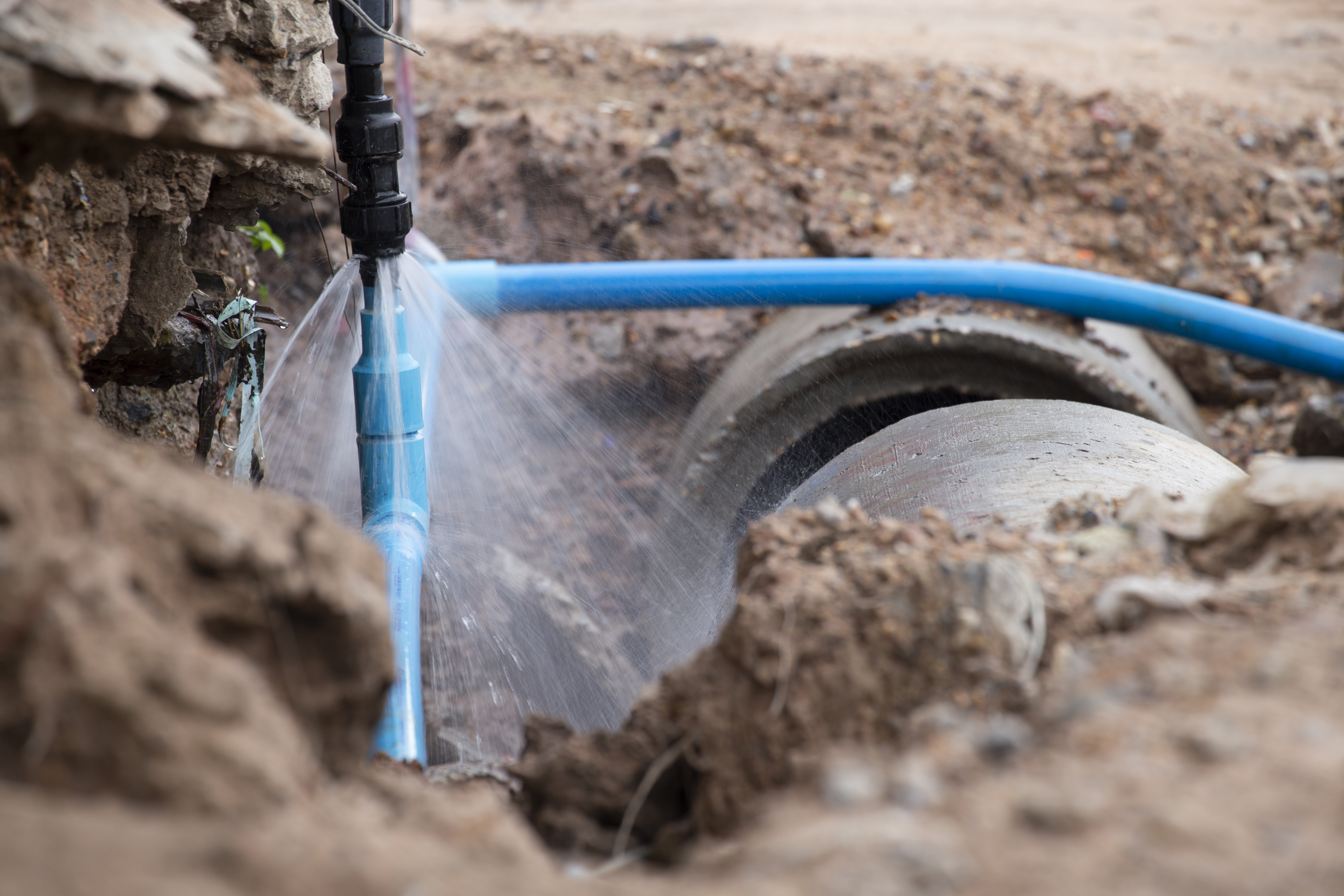
Discover the leading factors affecting your main water line replacement cost in Baltimore, including length, material selection, and installation details.
Turning off your well pump when you go on vacation can prevent damage to your system if a power outage occurs or if pipes burst, but only if you turn off your hot water heater and supply valve, too


You should turn off your pump using the circuit breaker located in your home’s electrical panel. But be careful: if your pump shares a breaker with another appliance or system, you’ll be cutting power to it, too.
Your job’s not done when you shut off your well pump. For extra safety, you should also turn off your main water supply line.
Turning off the water supply line will help prevent a problem if there’s an unexpected water leak or busted pipe. After all, no one wants to come home from a lovely vacation only to find a swimming pool in their flooded living room.
To turn off your water supply, you’ll need to use the supply valve located on your main water line. You can usually find this located near your hot water heater. If it’s not there, and your home has a crawl space instead of a basement, it could be in the crawl space or along an outside wall of your home.
In addition to turning off your well pump at the circuit breaker and your water supply at the main shutoff valve, you will also need to turn off your hot water heater. If you don’t cut the power and your tank runs dry, you could end up burning out your heating circuits and having to replace your tank.
Just as you did with your well pump, you’ll want to cut off your electric water heater at the circuit breaker, but make sure your heater’s the only appliance on that breaker. If you have a gas water heater, you’re also going to want to turn off the gas supply to your appliance. That way, you’re covering all your bases to protect your home and valuables while you’re away.
You should turn off your pump using the circuit breaker located in your home’s electrical panel. But be careful: if your pump shares a breaker with another appliance or system, you’ll be cutting power to it, too.
Your job’s not done when you shut off your well pump. For extra safety, you should also turn off your main water supply line.
Turning off the water supply line will help prevent a problem if there’s an unexpected water leak or busted pipe. After all, no one wants to come home from a lovely vacation only to find a swimming pool in their flooded living room.
To turn off your water supply, you’ll need to use the supply valve located on your main water line. You can usually find this located near your hot water heater. If it’s not there, and your home has a crawl space instead of a basement, it could be in the crawl space or along an outside wall of your home.
In addition to turning off your well pump at the circuit breaker and your water supply at the main shutoff valve, you will also need to turn off your hot water heater. If you don’t cut the power and your tank runs dry, you could end up burning out your heating circuits and having to replace your tank.
Just as you did with your well pump, you’ll want to cut off your electric water heater at the circuit breaker, but make sure your heater’s the only appliance on that breaker. If you have a gas water heater, you’re also going to want to turn off the gas supply to your appliance. That way, you’re covering all your bases to protect your home and valuables while you’re away.
You should turn off your pump using the circuit breaker located in your home’s electrical panel. But be careful: if your pump shares a breaker with another appliance or system, you’ll be cutting power to it, too.
Your job’s not done when you shut off your well pump. For extra safety, you should also turn off your main water supply line.
Turning off the water supply line will help prevent a problem if there’s an unexpected water leak or busted pipe. After all, no one wants to come home from a lovely vacation only to find a swimming pool in their flooded living room.
To turn off your water supply, you’ll need to use the supply valve located on your main water line. You can usually find this located near your hot water heater. If it’s not there, and your home has a crawl space instead of a basement, it could be in the crawl space or along an outside wall of your home.
In addition to turning off your well pump at the circuit breaker and your water supply at the main shutoff valve, you will also need to turn off your hot water heater. If you don’t cut the power and your tank runs dry, you could end up burning out your heating circuits and having to replace your tank.
Just as you did with your well pump, you’ll want to cut off your electric water heater at the circuit breaker, but make sure your heater’s the only appliance on that breaker. If you have a gas water heater, you’re also going to want to turn off the gas supply to your appliance. That way, you’re covering all your bases to protect your home and valuables while you’re away.
From average costs to expert advice, get all the answers you need to get your job done.

Discover the leading factors affecting your main water line replacement cost in Baltimore, including length, material selection, and installation details.

Find out how much plumbers cost in Baltimore. Discover the factors that influence pricing, including permits and local regulations for plumbing services.

Main water line repair costs in Baltimore depend on the extent of water line damage and also the pipe’s material. Learn all the factors that will influence what you pay.

It’s a big issue when no cold water is coming out of the faucet. Whether it’s a pipe problem or something else, take these steps to identify the cause and get cold water flowing again.

Range hood dripping water? You may have damaged flappers or need more insulation. Find out what’s causing the problem and call the right professional to fix it.

Read these 9 tips for inspiration on how to reduce your toilet’s water usage